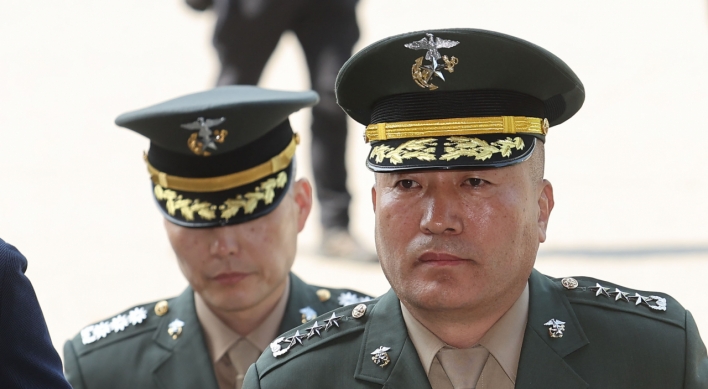The mobile balloting method the main opposition Democratic United Party has employed to pick its candidates for the April general elections has been marred by allegations that campaigners have solicited mobile votes through unlawful means.
Amid heated competition among campaigners, some have allegedly hired local residents or minor part-timers to register more voters favoring their would-be candidates as part of the “mobile electoral college” that will cast ballots via cellular phones in the nomination contest.
The race to secure online voters in the party’s stronghold of the southwestern Honam region was more intense than any other, as winning the party’s ticket there almost guarantees an eventual victory.
The brewing controversy over the process of soliciting mobile voters came to a head when a 61-year-old campaigner in Gwangju leapt to his death from a five-story building last Sunday amid an investigation by election watchdog officials into his alleged violation of the election law.
Amid heated competition among campaigners, some have allegedly hired local residents or minor part-timers to register more voters favoring their would-be candidates as part of the “mobile electoral college” that will cast ballots via cellular phones in the nomination contest.
The race to secure online voters in the party’s stronghold of the southwestern Honam region was more intense than any other, as winning the party’s ticket there almost guarantees an eventual victory.
The brewing controversy over the process of soliciting mobile voters came to a head when a 61-year-old campaigner in Gwangju leapt to his death from a five-story building last Sunday amid an investigation by election watchdog officials into his alleged violation of the election law.

The party has long stressed that the “reformative” mobile voting method will help make the nomination process more transparent, legitimate and democratic; eradicate illegal electioneering; reduce voter apathy; and include more grassroots voices in party affairs.
As the number of registered mobile voters has topped 700,000, which is more than nearly 600,000 mobile voters during the party’s leadership contest in January, the party has touted the method as a “success.”
DUP leader Han Myeong-sook apologized for “causing concerns” on Monday, reiterating that her party will not condone any election irregularities and corruptive practices in the nomination process.
The party has reportedly decided to suspend the nomination race in the Gwangju district and handpick a nominee for the district without open competition. Rep. Park Joo-sun, who is running in the district responded angrily to the decision, arguing that he had nothing to do with what the deceased campaigner had done.
Since last Monday, the DUP has started attracting mobile voters age 19 or older through its website and telephones.
Potential candidates have worked laboriously to encourage their supporters to register as mobile voters as the influence of the mobile electorate is far greater than that of offline voters, given the scale of their participation.
Amid the intense race to attract more mobile voters, some campaigners registered their candidates’ supporters in the mobile electorate on their behalf. Skeptics argue that the proportion of those who have voluntarily registered as mobile voters may be less than 10 percent of the total.
The campaigners have also targeted elderly voters uncomfortable with the complicated online registration process, and helped them register as mobile voters.
Some experts expressed concern that mobile phone voting could further deepen the so-called “mobile divide” or “digital divide” between tech-savvy young voters and older generations.
By Song Sang-ho (sshluck@heraldcorp.com)
-
Articles by Korea Herald



















